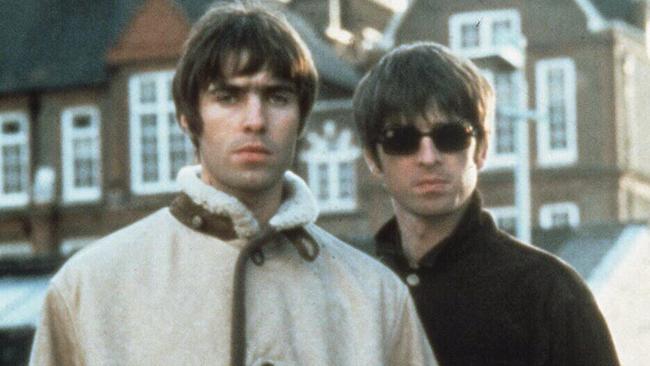Liam still misses his brother 10 years after Noel quit Oasis
A new documentary looks at the career of the younger Gallagher.

Wibbling Rivalry is 14½ minutes of vitriol. Released as a single in 1995, it is a recording of a heated, sweary argument between Noel and Liam Gallagher, then two up-and-coming musicians, during an interview with the New Musical Express
In the years that followed, the brothers found great fame as part of Oasis, a Britpop group, but the hostilities persisted, with physical fights on stage and legal action off it. In 2009 Noel quit the band just moments before a performance at a music festival near Paris.
It is in that heated moment that Liam: As It Was, a new documentary film, begins. Noel’s departure from the band seemed to be musical fratricide. Liam, along with other members of Oasis, rebranded as Beady Eye but they could not recapture the magic of what had come before. The venues got smaller, and their position on line-ups less prominent.
“F..k knows who I am,” Liam says in a clip taken later that year, and personal difficulties soon followed professional ones. In 2014 he divorced Nicole Appleton, his wife and partner of 14 years, following the revelation of a (second) love-child. Beady Eye also disbanded that year with a simple tweet: “Beady Eye are no longer. Thanks for all your support. LGx”
Made by Chris Lightening and Gavin Fitzgerald, Liam: As It Was documents the younger Gallagher’s downfall and his comeback. He takes a hands-on approach to the songwriting and production of his first solo album, As You Were (2017) — a notable contrast to his time in Oasis, where Noel assumed sole creative responsibility.
On tour, Liam is precious with his voice and worries when it begins to falter. He no longer smokes in the day or drinks as much. He goes to bed at a decent hour.
“I only take two grams of coke before I go on stage,” he quips. “I used to do eight.”
The film offers insight into the nature of his personal life. It shows Liam, one of British music’s biggest personalities, in more subdued moods: taking morning jogs, visiting his ageing mother and content in a new relationship with Debbie Gwyther, his manager.
When his two teenage sons join him on tour in Amsterdam, they flip the bird to each other and talk about getting high. The viewer gets the sense Liam thinks he was absent from their lives — “their mothers did a good job”, he observes — but this thought is not explored further. More jarring is the sudden appearance of Molly Moorish, his 21-year-old daughter from an extramarital affair; the filmmakers choose to ignore an interview from last year wherein Liam said he “just never got round to” meeting her. Liam: As It Was is more interested in the musical renaissance than the man himself.
The viewer senses that the final missing piece in this tale of redemption is Noel. When Liam visits the Gallagher family home in Burnage, Manchester, he looks round the room he shared with his brother, happily explaining how their feud really began (he urinated on Noel’s stereo).
When Liam is asked what he would do if they met after 10 years of estrangement, he says he is unsure — that he might give Noel a “love bite”. Liam’s social-media provocations (“To all you [Noel Gallagher] fanboys I can and will sing any song he wrote bigger better than him even if I was kicked in the bollox by a wood pigeon”) and invitations (“I forgive you now let’s get the BIG O back together and stop f..king about the drinks are on me LG x”) are considered by the film’s talking heads as childlike manifestations of love.
He misses his brother, and, he wonders what Noel thinks when he releases new music. Indeed, Noel’s mark on the film goes beyond mere sentiment.
After watching the film ahead of its premiere in London last month, he refused to allow any Oasis songs to feature.



To join the conversation, please log in. Don't have an account? Register
Join the conversation, you are commenting as Logout